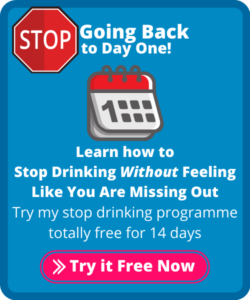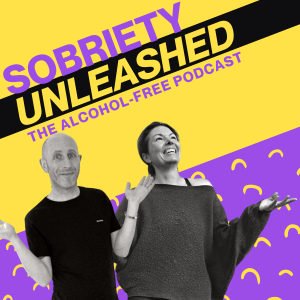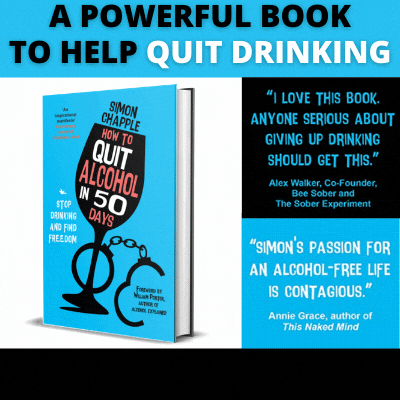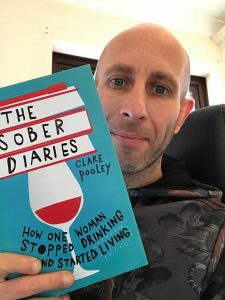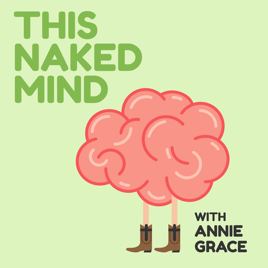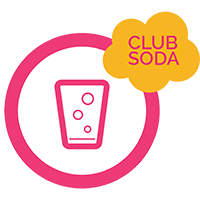Am I Really Addicted? – Warning signs of withdrawal you should look out for
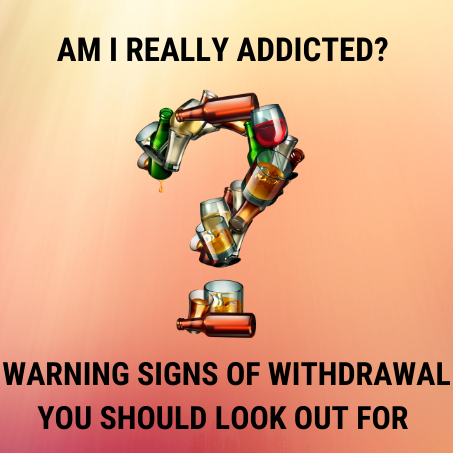
I genuinely believe that no one starts out thinking they will become addicted to anything. With alcohol I used to drink for fun, then I would use it to as a stress reliever and before I knew it, I was hooked. Alcohol was the first thing I thought about when I woke up in the morning and it was the last drink I used to have before going back to bed. I was in an awful drinking spiral that was rapidly impacting my physical and mental health and I had to make a dramatic change.
When I first started looking into my levels of drinking, you could certainly say that I had become sober curious. I wasn’t prepared to remove wine from my life, but I was also conscious that I may have a problem. But did I really? Addictions impact other people, not me – this was how my thought processes used to work. The truth of the matter is that I only fully realised just how addicted I was to wine once I had removed it from my life altogether. One of the most frightening and ‘brought back down to earth’ moments was realising that I was suffering from withdrawal symptoms. I had for many years, been in denial about my level of drinking but it soon became clear to me that I was in fact addicted to alcohol.
Withdrawal to any addiction normally displays some form of change to you whether that’s physical or mental. They do vary from person to person, however, there are some clear withdrawal symptoms that you should look out for. Whether you are concerned about your own drinking or you are worried about someone close to you.
What is withdrawal?
In essence, withdrawal symptoms are physical or psychological features or behaviours which closely follow once you have stopped taking the addictive substance (in this instance alcohol). This is a clear sign that your body has become addicted and reliant upon alcohol, as removing it causes unwarranted symptoms.
For me, it was seeing my hands shaking uncontrollably with me not being able to stop them which really hit home that I had done some serious damage to my body. So much so that I was displaying physical signs of addiction even after 24hrs of not drinking.
If you are displaying any of the below withdrawal symptoms, then it is highly likely that you have formed an addiction to alcohol. However, this does not mean that you can’t change and look to reverse any damage caused from alcohol abuse. I want to highlight these so you can see if you really are addicted to alcohol.
#1 Mind Check – Is alcohol always at the forefront?
One of the key warning signs of an alcohol addiction and having withdrawal symptoms is that alcohol is always on your mind. It doesn’t matter what time of the day or night it is, if you find yourself desperately planning and changing your routines so alcohol is the integral part of your day as you don’t want to miss out on not having a drink, then it’s a clear warning sign that you have a problem with drink and it is taking over your life.
#2 Morning Check – How do you feel when you wake up?
Can you not remember the last time you woke up and didn’t feel hungover from your alcohol consumption from the night before? For me, feeling hungover was a part of life. I had got to a stage where waking up, feeling completely out of it like I hadn’t slept, moody, headaches, pains were all the norm. It was only once I had completely removed alcohol from my life, I now realise what it means to wake up feeling refreshed and alive. It’s a warning sign that you should not ignore if you find that more days than not out of the week, you are waking up hungover due to over consumption of alcohol from the night before.
#3 Mood Check – How are you feeling right now?
One clear warning sign of alcohol withdrawal is a negative impact to your overall mood and psychological outlook. With an addiction to alcohol, as a drug, it wants to remain in your system. If you go for too long without having the drug at a certain level in your body then one withdrawal symptom is erratic mood swings. You might go from feeling extremely positive to very low in a matter of minutes. For me, alcohol greatly increased my levels of anxiety. For a few years, how I felt for most of the time was completely awful. I thought alcohol would help my mood and it may have done for a very short time period, but as withdrawals kicked in, my mood became worse and worse. It was only once I had gotten past this with sobriety did my mood level out and my outlook greatly improve.
#4 Health Check – Has your physical and mental health decreased?
Alcohol impacts you both physically and mentally. In the most extreme cases, alcohol poisoning can lead to death. In less extreme cases, as a depressant, it can completely mess up your thought processes and your mental health with increased anxiety, lack of sleep and physical signs such as ‘the shakes’ and sickness. If you have noticed that your health is deteriorating when you are withdrawing from alcohol, I know it can be all too easy to go back to the booze, but this is another red flag that you have a problem with alcohol.
Anyone who suffers from withdrawal symptoms from alcohol will tell you that it is awful. Remember, your addiction wants you to remain addicted, so before you can experience the benefits of sobriety, there will be a certain element of ‘pain’ you have to go through both physically and mentally. If any of the above symptoms resonate with you, then I would urge you to look at your level of drinking and whether it’s a case that what may have started as casual drinking has now gotten out of control and formed into an addiction.
What I can promise you from my own experience is that if you are able to commit to sobriety, then the pain of withdrawal does not last forever, although it can feel like it will at times. I have created some excellent videos on this subject matter on my YouTube Channel which I would love for you to check out. I also have a fantastic support community online on Facebook which is completely free of charge. It’s a safe space for you to talk to others who are starting out or have been on their sober journey for a number of years.

